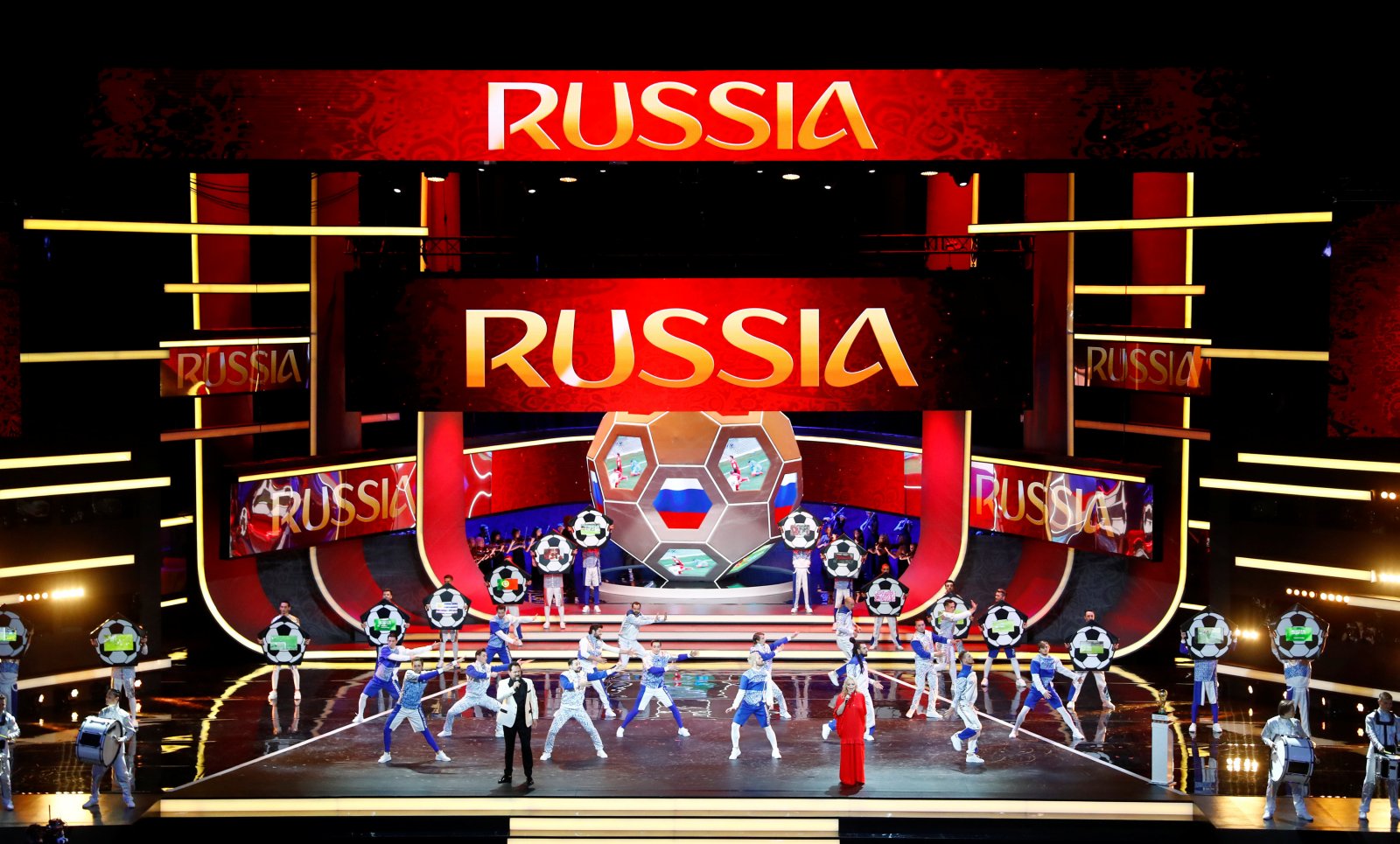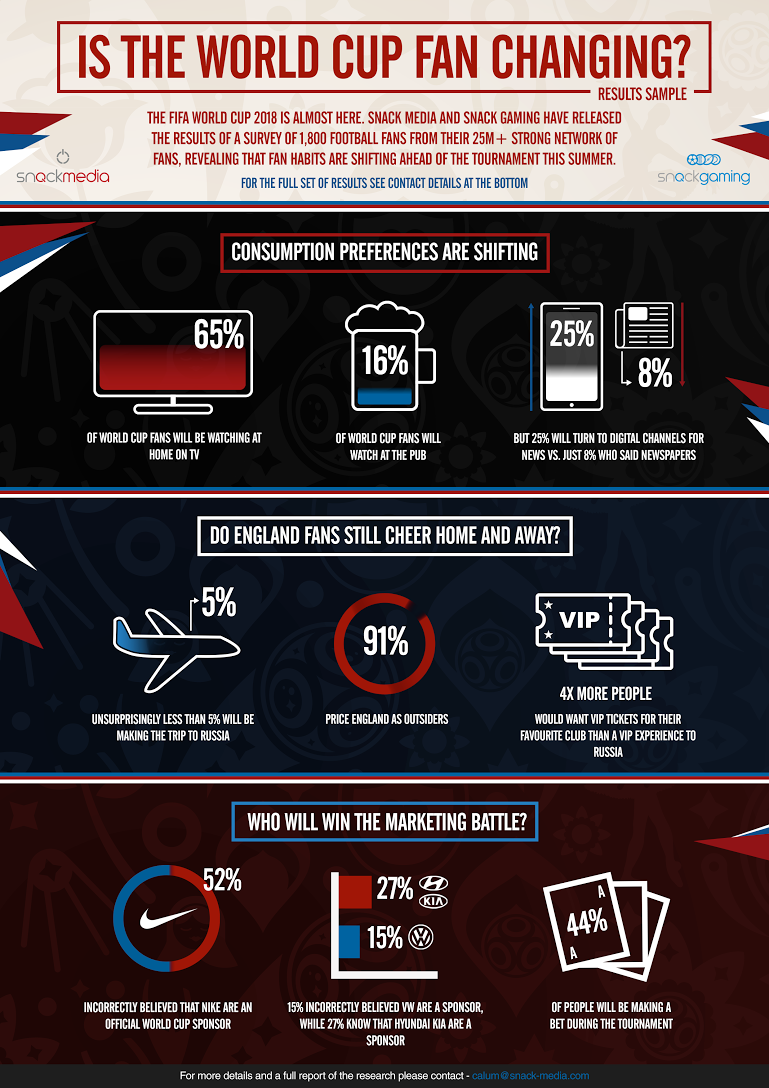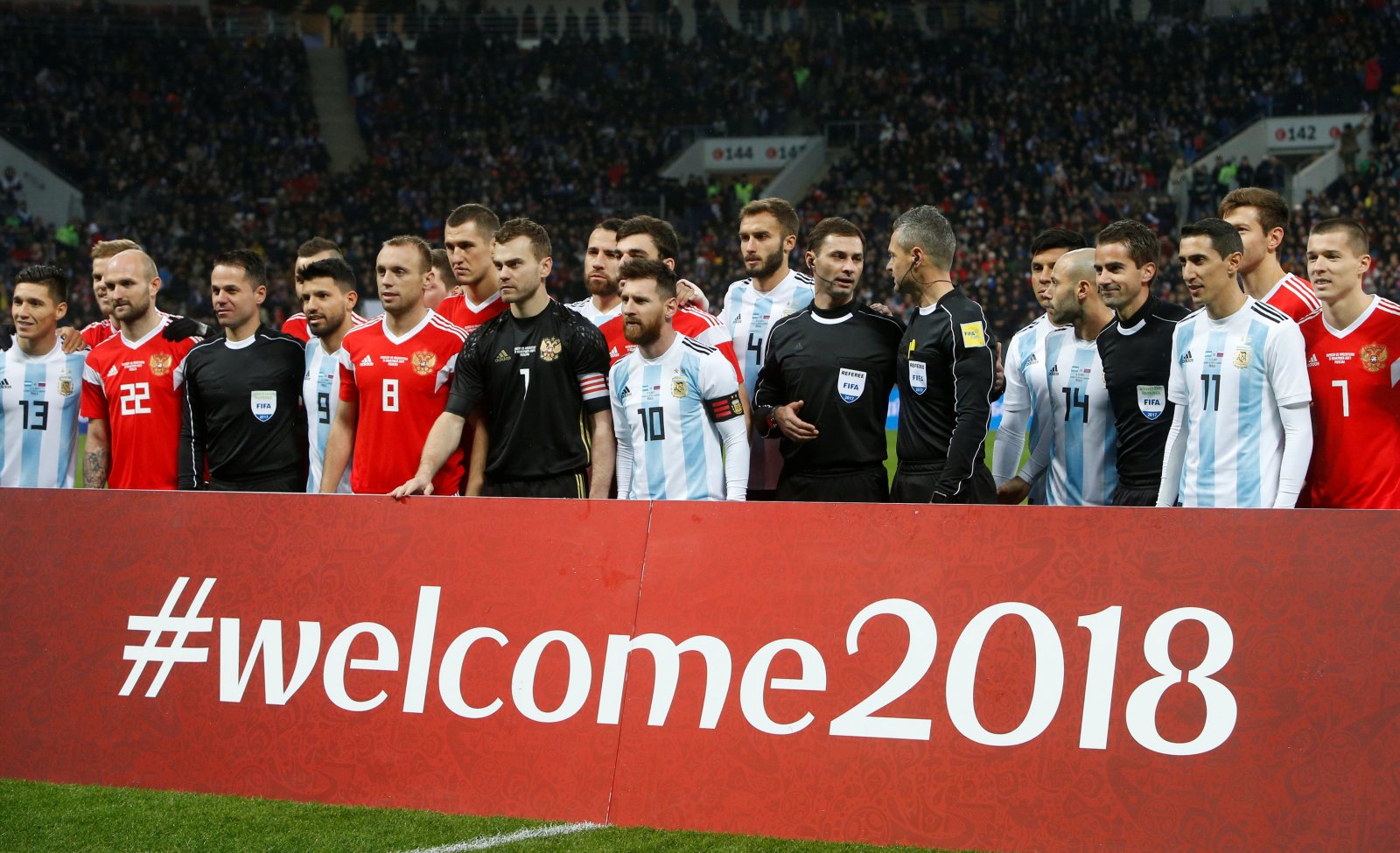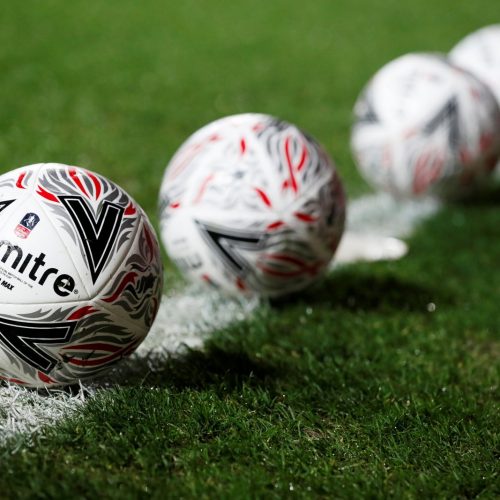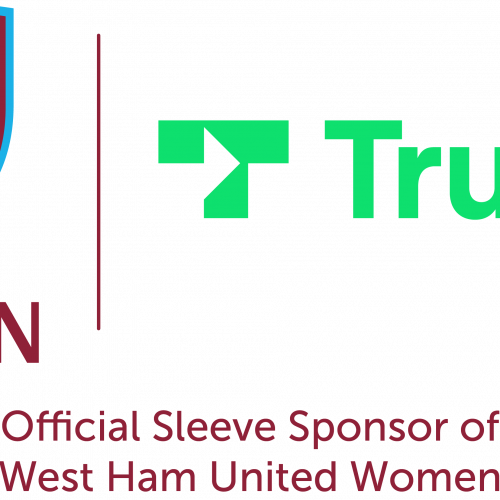If England fans aren’t going to Russia, how will they be consuming the World Cup?
This week, the BBC reported that England fans have applied for fewer tickets than usual for this summer’s World Cup in Russia.
So far, 30,711 tickets allocated have been allocated to England fans, putting them the 11th most-supported nation in terms of tickets allocated so far. “By February 2014,” the BBC point out, “51,222 tickets had already been allocated to England fans heading to Brazil, making them sixth on the list of countries.”
The BBC analysis then goes on to reveal is that this is the case for a number of reasons.
Asked why they won’t be traveling this summer, England fans highlighted the heightened political tensions as well as perceptions about an unfriendly welcome from Russians. Racism or homophobia and even hooliganism are other obvious factors which have been amplified of late thanks to media coverage. Another, more banal, reason is apathy towards England’s own football team.
The last few competitions have seen England fans disappointed or even embarrassed by their side’s performances, but perhaps even the style of football produced by Gareth Southgate’s team is part of the reason, too: no one expects the Three Lions to be one of the nations challenging for the trophy by the end of the knockout stages.
Back in October, Digital agency Snack Media announced a piece of research into fan behaviour ahead of the tournament. The study, based on responses from 1,800 England fans revealed that fewer than 5% of them were thinking of traveling to Russia to support their team. 91% ranked England as outsiders, which chimes with what’s being reported now.
This is the time when people will start to step up their efforts before the World Cup kicks off in June, and so this is a good time to highlight some of the other points from that research which are also worth bearing in mind over the coming weeks and in the build-up to the tournament.
For starters, 65% of respondents to Snack’s poll said that they’d be watching the World Cup on their TV, with just 16% saying they’d watch in the pub. Live streaming options, then, are still expected to be less prevalent than traditional linear television for now.
That’s not a surprise as many people still see ‘streaming’ as something they do on a laptop or a phone, but those perceptions will shift as the mainstream uptake of smart TVs and other connected devices takes place. Most people, though, will be watching on their TVs in their living rooms, providing opportunities for advertisers. Perhaps 1 and 3pm kickoff times will have an impact on where people watch, too – especially on weekdays.
The live action itself, meanwhile, is another big advertising possibility according to the data. Snack’s research highlights how other potential ‘on-demand’ content strands around the tournament appear to be less appealing to fans than the live games themselves. There are some opportunities online, however: 25% of those asked said they would get their news updates from digital media channels, compared to 8% who said they’d consult the traditionally big-hitting newspapers. Much will be made of his this is set to be the ‘most social’ World Cup, but we already knew that – it will still be vital for marketers and advertisers to take advantage of social media and online channels.
Finally, and while this may not be a particularly outlandish claim, ambush marketing will once again be a strong player over the summer.
As always, fans are not always aware which companies are official sponsors of the tournament. 54% of those asked identified Nike as an official partner, whilst 57% identified Adidas. Clearly, when both companies sponsor teams who wear their kits in the tournament, the average fan is marked just as much by one as the other: being the official sponsor won’t help Adidas, say, if the final is played out between France and Brazil, who both play in Nike kits.
With just two months to go until the World Cup hits our screens, there isn’t much time left to plan campaigns and strategise. But as fewer fans than normal are expected to make the trip to Russia, there are still huge opportunities at home on TV, on social media and online.
About author
You might also like
Leeds United become first football club to sell official jerseys on TikTok
Leeds United is the first football club in the world to partner with TikTok to sell official merchandise and replica jerseys. Coinciding with the release of the new rhapsody purple,
Lewes FC Appoints Sue Anstiss To Its Board Of Directors
The Lewes FC Board is delighted to announce that it has co-opted Sue Anstiss as a Lewes FC Director. Sue has been a driving force for equality in sport for
Trustly extends partnership to become West Ham United Women’s Sleeve Partner
West Ham United is pleased to announce that Trustly has enhanced its relationship with the Club by becoming the Women’s Sleeve Partner. Trustly, the leading global account-to-account payments platform, became

